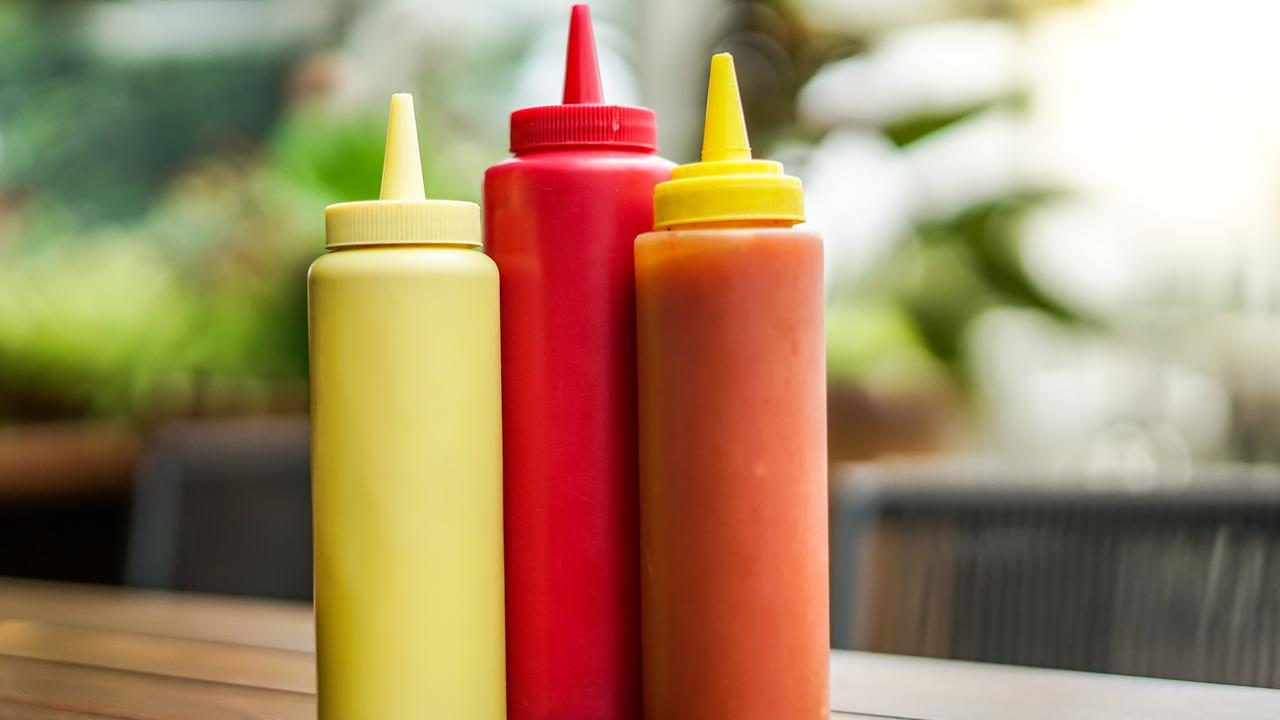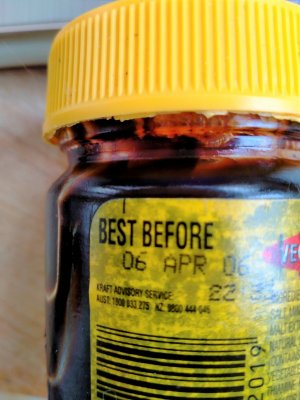Where should you keep your tomato sauce? Doctor settles the debate once and for all
By
- Replies 18
We all have private pantry rituals that we swear by to keep our snacks nice and fresh. Some people say chocolate in the freezer is superior while others keep their cereal in the fridge. But is there a concrete reason for keeping some food items refrigerated while some should just stay put in the pantry?
Even though we may not want to hear it, the answer is no, not really. Most of the time, it all boils down to our personal preferences.
When it comes to the age-old question of whether you should keep your condiments such as jam, peanut butter and of course, tomato sauce refrigerated or not, a doctor claims that it's not necessary.
Dr Zac Turner of Concierge Doctors explained that tomato sauce and other condiments like BBQ sauce and mustard do not require refrigeration due to their high acidity and processing.
'Even after it’s been opened, it remains microbially stable for quite some time, which means little bacteria grows in it,' he said.

Dr Zac Turner said that condiments like tomato sauce don't need to be kept in the fridge. Credit: iStock.
Since peanut butter and vegemite both lack significant amounts of water, bacterial growth is more difficult. Both spreads are items that can be kept on the shelf before and after being opened since they are shelf-stable.
When food is infected with bacteria while being handled, cooked, or stored, food poisoning occurs. Food that is tainted occasionally even has a normal appearance, flavour, and aroma. Salmonella, Campylobacter, Listeria, Norovirus or Rotavirus, and E. coli are just a few of these unpleasant bacteria.
Food storage is especially risky because, if done improperly, bacteria can grow to deadly levels. The temperature range between 5 and 60 degrees Celsius is where food-poisoning bacteria multiply and develop the quickest.
He advised: 'Ensuring your refrigerator stays below this is important to keep potential pathogen growth reduced.'
The doctor also suggested reading the label of the item and checking for its storage requirements to ensure that they don't get contaminated with bacteria.
'Can I just say that you can find out all this information by reading the labels of your food; it is here that you will find storage directions,' Dr Turner remarked.
'It’s always best to follow what your food label says.'
And of course, there is food that you should keep a closer look at because they are at high risk of getting contaminated.
Meat, both raw and cooked, dairy products, eggs, shellfish, and ready-to-eat foods are among these high-risk items.
He added: 'If your gut is telling you to not eat it, you should listen to it!'
Food poisoning is a serious problem that can lead to hospitalisation or even death.
Each year, there are over 4.1 million cases of food poisoning in Australia. Of those, 31,920 have been hospitalised and 86 people died.
Stay safe out there, folks!
Even though we may not want to hear it, the answer is no, not really. Most of the time, it all boils down to our personal preferences.
When it comes to the age-old question of whether you should keep your condiments such as jam, peanut butter and of course, tomato sauce refrigerated or not, a doctor claims that it's not necessary.
Dr Zac Turner of Concierge Doctors explained that tomato sauce and other condiments like BBQ sauce and mustard do not require refrigeration due to their high acidity and processing.
'Even after it’s been opened, it remains microbially stable for quite some time, which means little bacteria grows in it,' he said.
Dr Zac Turner said that condiments like tomato sauce don't need to be kept in the fridge. Credit: iStock.
Since peanut butter and vegemite both lack significant amounts of water, bacterial growth is more difficult. Both spreads are items that can be kept on the shelf before and after being opened since they are shelf-stable.
When food is infected with bacteria while being handled, cooked, or stored, food poisoning occurs. Food that is tainted occasionally even has a normal appearance, flavour, and aroma. Salmonella, Campylobacter, Listeria, Norovirus or Rotavirus, and E. coli are just a few of these unpleasant bacteria.
Food storage is especially risky because, if done improperly, bacteria can grow to deadly levels. The temperature range between 5 and 60 degrees Celsius is where food-poisoning bacteria multiply and develop the quickest.
He advised: 'Ensuring your refrigerator stays below this is important to keep potential pathogen growth reduced.'
The doctor also suggested reading the label of the item and checking for its storage requirements to ensure that they don't get contaminated with bacteria.
'Can I just say that you can find out all this information by reading the labels of your food; it is here that you will find storage directions,' Dr Turner remarked.
'It’s always best to follow what your food label says.'
And of course, there is food that you should keep a closer look at because they are at high risk of getting contaminated.
Meat, both raw and cooked, dairy products, eggs, shellfish, and ready-to-eat foods are among these high-risk items.
He added: 'If your gut is telling you to not eat it, you should listen to it!'
Food poisoning is a serious problem that can lead to hospitalisation or even death.
Each year, there are over 4.1 million cases of food poisoning in Australia. Of those, 31,920 have been hospitalised and 86 people died.
Stay safe out there, folks!








